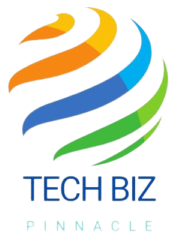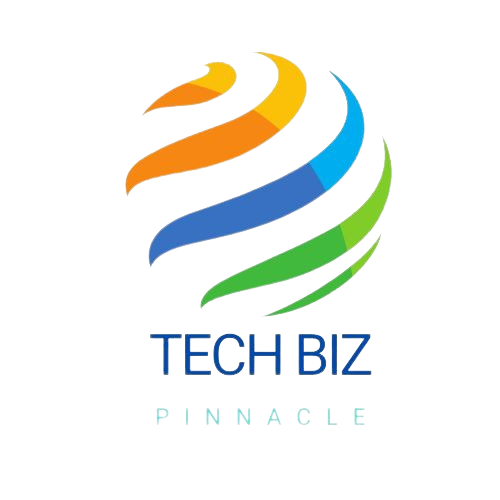Imagine a world where your Game Changers Blockchain online stuff is as safe as cash in a safe. That’s what blockchain tech is about. First made for things like Bitcoin, blockchain has grown a lot. It’s now in health care, finance, and more, making things clear and safe for all.
In gaming, especially online games, blockchain brings a new level of truth and owning stuff that wasn’t possible before. This blog will look at how blockchain is changing the way we play games online, focusing on new possibilities and problems. Whether you play games for fun or love tech, get ready—this big change is just the beginning.
The Intersection of Blockchain and Online Gaming A Brief History
Blockchain began in finance but quickly found its way into gaming. The key moment came in 2017 with the launch of CryptoKitties, a game where players could breed and trade special digital cats, each one a unique digital token.
CryptoKitties showed many ways to use blockchain in gaming, from safe playing fields to secure deals. The mix of blockchain and gaming is getting more attention, as game makers look into how this tech can change gameplay, ownership, and making money.
How Blockchain is Revolutionizing the Gaming Experience
Decentralized Gaming Platforms
Traditional online gaming platforms are centralized, meaning all data and transactions pass through a single server. This centralization often leads to issues like downtime, data breaches, and unfair practices. With blockchain, gaming platforms can become decentralized, offering a plethora of advantages.
Firstly, decentralized platforms are more secure. The distributed nature of blockchain means there’s no single point of failure, making it harder for hackers to corrupt the system. Secondly, they provide unparalleled transparency. Every transaction is recorded on a public ledger, ensuring fair play and integrity. Finally, decentralization allows for community-driven governance, where players have a say in game development and policies.
Ownership of In-Game Assets
One of the most groundbreaking aspects of blockchain in gaming is the true ownership of in-game assets. In traditional gaming, players can spend hundreds of dollars on virtual items, but they don’t truly own them. These assets remain under the control of the game developer, and players can lose access at any time.
Blockchain changes that by allowing players to own their in-game assets through NFTs. These tokens are stored on the blockchain, providing indisputable proof of ownership. Players can trade, sell, or transfer these assets outside the game environment, creating real-world value.
Secure and Transparent Transactions
In the world of online gaming, transactions are frequent—whether it’s purchasing in-game items or betting in a multiplayer blackjack game. Blockchain makes these transactions secure and transparent. Smart contracts can automate and verify transactions, reducing the risk of fraud and ensuring immediate, irreversible transactions.
This transparency extends to gaming economies, where in-game currencies can be traded openly on blockchain platforms.For those managing cryptocurrency transactions in gaming or other industries, tools like bitcoin accounting software can help track and organize finances, ensuring accuracy and compliance in this transparent ecosystem. Players can have confidence in the fairness of in-game purchases and bets, knowing that every transaction is publicly verifiable.
Case Studies Successful Integration of Blockchain in Gaming
CryptoKitties
CryptoKitties is a prime example of how blockchain can create unique gaming experiences. Each CryptoKitty is an NFT, making it a one-of-a-kind token. Players can breed and trade these digital cats, and some rare kitties have sold for thousands of dollars. This game not only showcased the potential for blockchain in gaming but also sparked interest in NFTs and virtual asset ownership.
Gods Unchained
Gods Unchained is a blockchain-based card game where players have true ownership of their cards. The game uses the Ethereum blockchain to mint cards as NFTs, allowing players to trade and sell them freely. This decentralization ensures that players genuinely own their digital assets, adding an extra layer of value to the gaming experience.
Decentraland
Decentraland takes blockchain gaming to a whole new level by creating a virtual world where players can buy, sell, and build on virtual land. Each parcel of land is represented by an NFT, giving players full ownership. The platform’s decentralized nature allows for a player-driven economy, where users can create, monetize, and interact with digital content.
Challenges and Future of Blockchain in Gaming
Scalability
One of the significant challenges blockchain faces in gaming is scalability. Popular blockchains like Ethereum can only handle a limited number of transactions per second, leading to slow processing times and high fees. This limitation can hinder the seamless experience gamers expect.
To overcome this, developers are exploring solutions like Layer 2 protocols and alternative blockchains. These technologies aim to increase transaction speeds and reduce costs, making blockchain gaming more accessible and enjoyable.
User Adoption
Despite its potential, blockchain gaming is still in its early stages, and widespread Game Changers Blockchain adoption remains a hurdle. Many gamers are unfamiliar with blockchain technology and may find it confusing or intimidating. Educating users and creating user-friendly interfaces are crucial steps to driving adoption.
Developers must focus on seamless integration, making blockchain features an added benefit rather than a complication. Simplifying wallet setups, transaction processes, and asset management can help attract more players to the blockchain gaming ecosystem.
Regulatory Hurdles
The regulatory landscape surrounding blockchain and cryptocurrencies is constantly evolving. Governments are grappling with how to regulate these technologies, and gaming companies must navigate these complexities. Regulations can impact everything from taxation to the legality of in-game asset trading.
To thrive in this environment, gaming companies must stay informed about regulatory changes and work closely with legal experts. Proactive compliance and clear communication with players can help build trust and legitimacy.
The Community and Economic Implications of Blockchain in Gaming
Blockchain gaming isn’t just about technology; it’s about Game Changers Blockchain creating vibrant communities and economies. In traditional gaming, players often form communities based on shared interests and experiences. Blockchain takes this a step further by enabling player-driven economies and governance.
Players can participate in decision-making processes, influencing game development and policies. In-game economies can thrive as players trade and monetize their assets. This sense of ownership and involvement fosters stronger, more engaged communities.
Economically, blockchain gaming opens up new revenue streams for both players and developers. Players can earn real income by trading virtual assets, while developers benefit from transaction fees and secondary markets. This symbiotic relationship can drive innovation and sustainability in the gaming industry.
Conclusion
Blockchain technology has the potential to revolutionize the gaming industry, offering unprecedented levels of security, transparency, and ownership. From decentralized platforms to true ownership of in-game assets, the benefits are clear. Successful case studies like CryptoKitties, Gods Unchained, and Decentraland demonstrate the possibilities.
However, challenges like scalability, user adoption, and Game Changers Blockchain regulatory hurdles must be addressed for blockchain gaming to reach its full potential. By overcoming these obstacles, the industry can create immersive, secure, and player-driven experiences that redefine gaming.
Are you ready to explore the future of gaming? Join our community and stay updated on the latest trends, innovations, and opportunities in blockchain gaming. Together, we can shape the next chapter of this exciting revolution.

